Why climate change is the symptom of a much deeper and bigger problem


· 6 min read
Climate change, fossil fuels and greenhouse gas emissions are receiving increasing media attention in the West thanks to climate activists and a meteorology that records peak temperatures at an increasing rate. As a result, more and more pledges are being made to tackle the problem, governments, companies and organisations. For example, Jeff Bezos recently donated billions of dollars to “fight climate change”. If all these efforts are signs that steps are being taken to tackle a global threat that could seriously jeopardize the future of humanity, it appears that our efforts to overcome the great challenge of our times are hindered by a lack of understanding of its nature, its underlying causes and its solution.
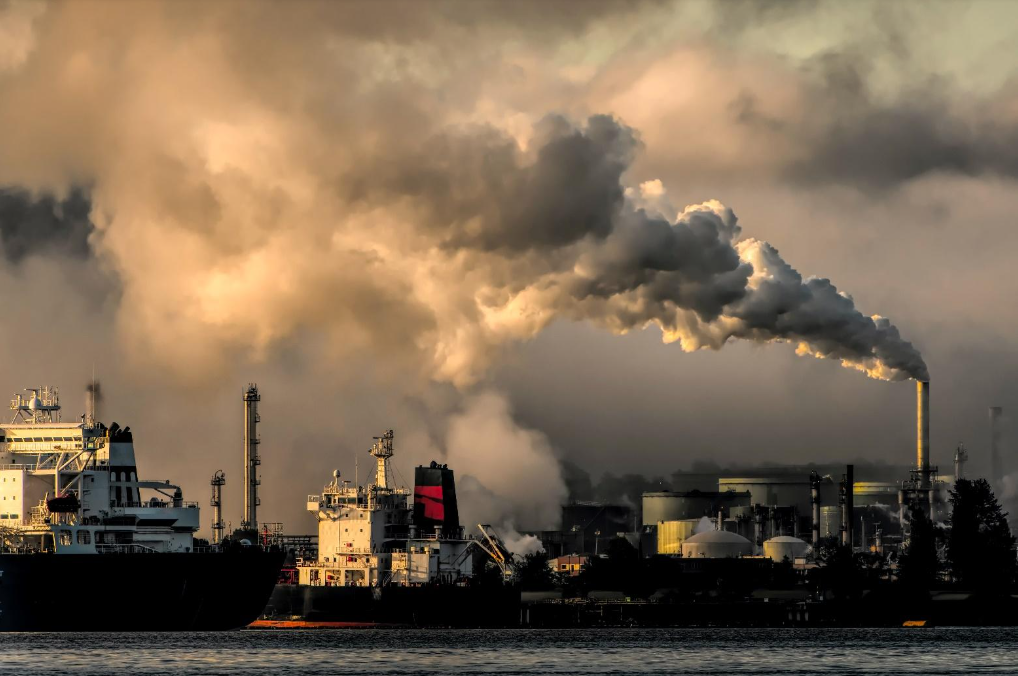
In fact, climate change appears to be not the only ecological problem we are facing, a growing number of alarming scientific reports point to the overconsumption of our planetary resources, the destruction of the ecosystems, the pollution of air, water, soil and what is being called the 6th mass extinction which indicate that we are in the process of destroying the conditions that make our existence possible. To better understand what is taking place, it is important to take a step back and look at the bigger picture using two key indicators: humanity's ecological footprint and earth's biocapacity.
Humanity’s ecological footprint stands for the impact of human activities on Earth:
Earth biocapacity, on the other hand, stands for our planet's ecosystems' ability to absorb this impact:
When humanity’s ecological footprint offsets Earth biocapacity, we are in a situation described as an overshoot of our planetary limits
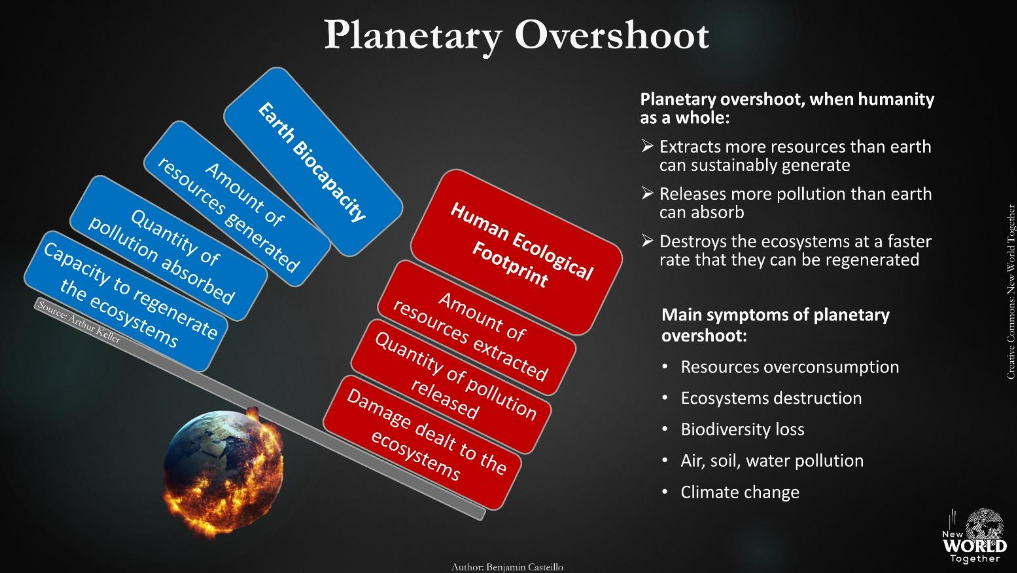
Climate change is just the symptom of a bigger ecological problem: the overshoot of our planetary limits. If we don’t resolve it, we are going to face an ecological disaster on a planetary scale with unprecedented catastrophic consequences. To avoid it, we have no other choice but to integrate our planetary limits and achieve a global sustainable transition.
Although it is common to consider sustainability while focusing only on ecological issues, it is very unlikely to be an effective approach to achieving a sustainable transition. We are not only facing an aggravating critical ecological situation, but we are also facing major socio-economic and political issues: a growing human population, extreme poverty and famines, rising inequalities, increasing financial debts, out-of-control inflation, geopolitical tensions and an increasingly polarized population. What we are dealing with is not just climate change or an ecological emergency, but a multifactorial systemic and global crisis of sustainability. All these issues are not separated from one another but interrelated. Unfortunately, we haven’t yet reached the collective level of awareness needed to properly define the problem which is hindering our ability to conceive of realistic solutions. If “a problem well stated is a problem half solved” as Charles Kettering quotes, a problem unproperly stated is a problem that we can’t even start solving.
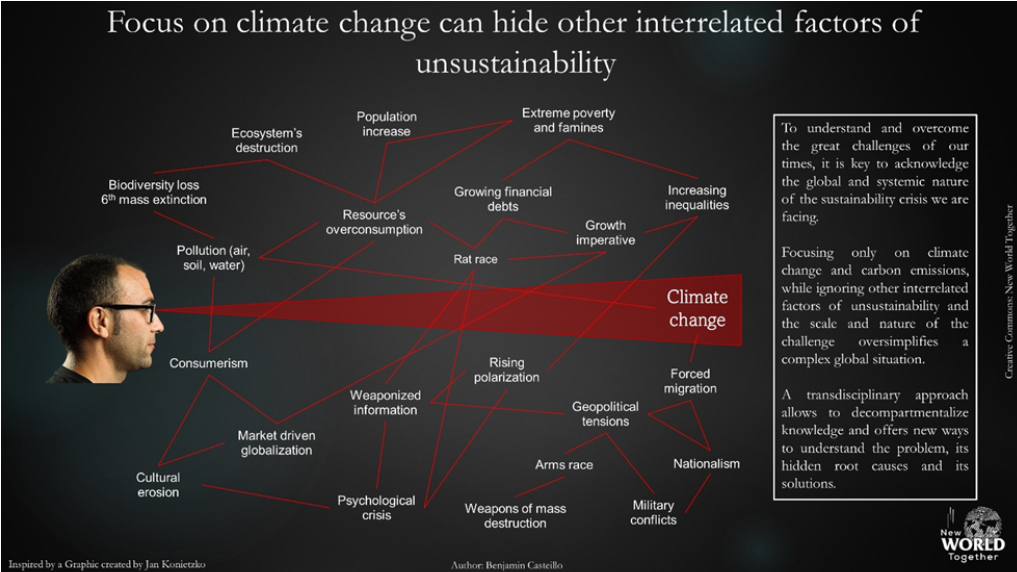
To resolve a systemic and global crisis of sustainability, it is key to identify and treat its underlying causes. It is undeniable that whether they are socio-economic or ecological, all the factors of unsustainability share one common denominator: they are all the result of certain human behavior patterns.
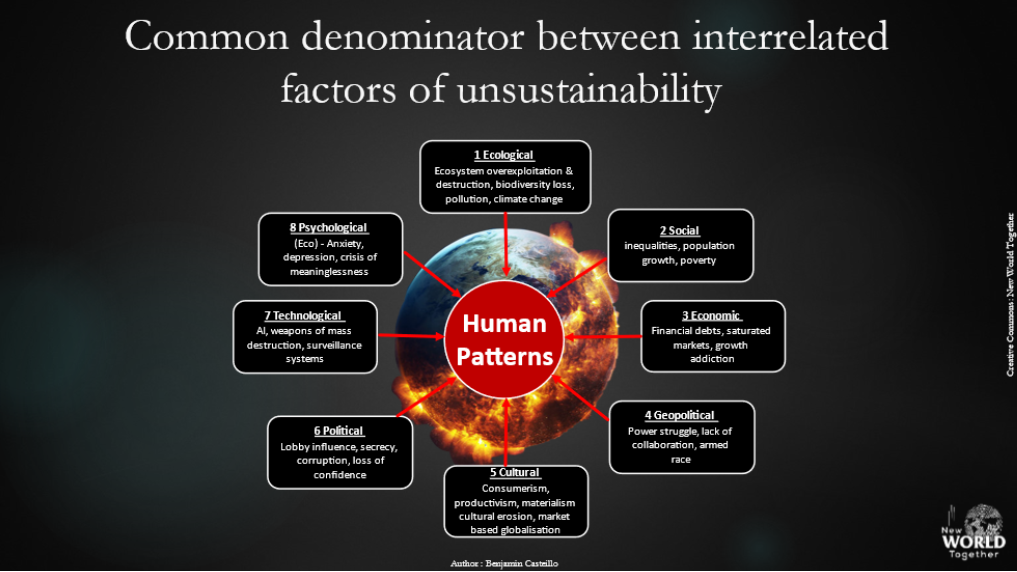
And it is not difficult to guess what fosters them. Our global economy built on the pursuit of the American dream is materialist, consumerist and productivist. It is based on ruthless competition for short-term profits, unlimited accumulation of capital and growth. On a finite planet, such an economic system can only lead to the overexploitation and destruction of the ecosystems. What we are experiencing is a predictable overshoot of our planetary limits: a global scale tragedy of the commons in which the earth's vital resources are being overconsumed in order to feed self-perpetuating rivalries for power, wealth and status. The global and systemic problem we are facing is not technological or technical but human and created by carelessness, ignorance and greed.
The global and systemic crisis of sustainability we are facing is reminding us about disregarded lessons of ancient wisdom about the importance of empathy, ponderation and solidarity which under these new circumstances appear as vital qualities to nurture and develop for our human species to become sustainable. And to learn that very precious lesson, we must collectively find the courage and maturity to recognize that the problem we are trying to solve outside of ourselves, finds its roots within ourselves.
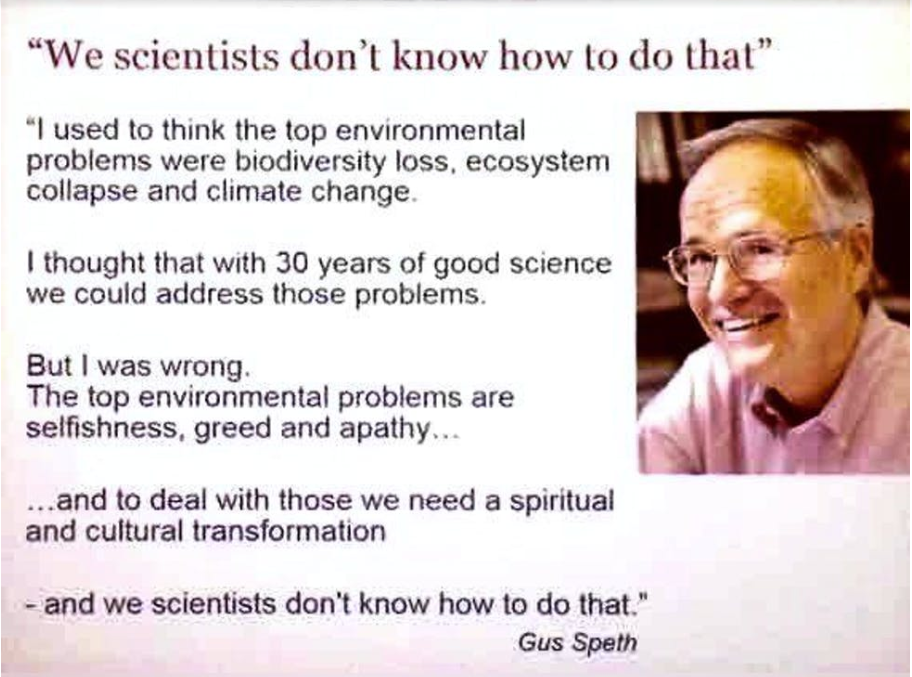
We are not there yet as all the dominant systems of power appear to support the unsustainable status quo. While we are approaching a tipping point and a global disaster, our politicians are busy perpetuating and optimizing the GDP growth, our media are placing our attention on mundane stories and superficialities, our social media use the best of artificial intelligence to keep us hooked, employees are burning themselves out doing mostly meaningless jobs, and we are constantly bombarding ourselves with advertisements to consume always more so that we can feed our collective addiction to GDP growth.
Before we can do anything, we might need to collectively acknowledge that we have kept ourselves entertained and distracted away from an impending global crisis of sustainability. As long as we unconsciously choose to keep ourselves and one another in a state of denial, escapism and apathy, we will continue on our path towards planetary disaster. Undeniably, facing this situation will require a certain level of mental and emotional maturity and it challenges our beliefs and certainties. To encourage ourselves it is important to remind ourselves that feeling temporarily distressed and overwhelmed is part of the process, before we can grasp the grasp the magnitude of the problem and set ourselves in the conditions needed to move toward the solution.
As much as all of this might seem very depressing and overwhelming, we would be lying to ourselves if we were saying that we are facing a problem without a solution. We would be also quite blind not to see the opportunity within the challenge. In fact, addressing the underlying cause of the crisis of sustainability implies profound changes and therefore an opportunity to reinvent ourselves and our society for the better.
The global and systemic crisis of sustainability that we are facing is not only a great danger but also a great opportunity for evolution and positive change. It is trying to teach us a lesson as we are all invited to learn how to take care of ourselves, one another and our planet. What better time to start than now?
illuminem Voices is a democratic space presenting the thoughts and opinions of leading Energy & Sustainability writers, their opinions do not necessarily represent those of illuminem.
illuminem briefings

Labor Rights · Climate Change
illuminem briefings

Architecture · Carbon Capture & Storage
Barnabé Colin

Biodiversity · Nature
Euronews

Degrowth · Public Governance
Politico

Public Governance · Climate Change
Mongabay

Climate Change · Environmental Rights